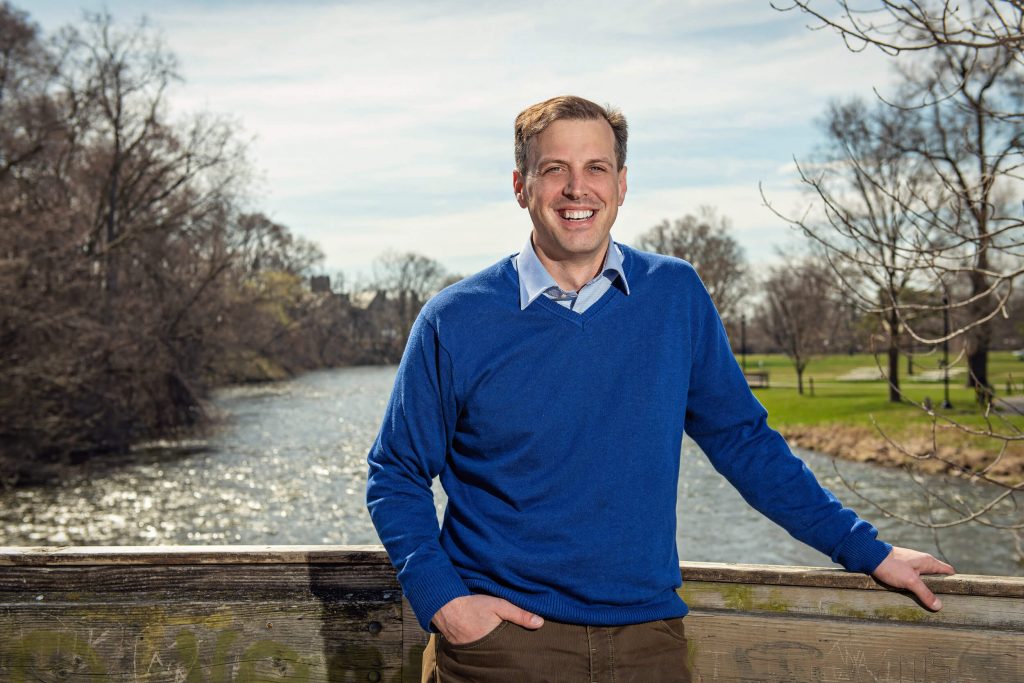
Sen. Jeff Irwin, D-Ann Arbor. Credit: Michigan House of Representatives
By Elinor Epperson
Capital News Service
It’s been one year since Michigan Democrats introduced legislation that would significantly change the state’s environmental regulations.
But those bills are stuck in committee.
Election distractions, negotiation, and a slim Democratic majority in the state House have kept a suite of polluter-pay bills in limbo, according to environmental advocates and one of the sponsors.
Polluter-pay laws hold businesses financially liable for contamination they cause.
Lawmakers introduced the bills a year ago, but they haven’t made much progress since.
The bills aren’t necessarily stuck – they’re just subject to a long negotiating process, said Sen. Jeff Irwin, D-Ann Arbor, a cosponsor.
“We’re just trying to arrange all of the best expertise because this is a complicated area,” he said. “And there are billions and billions of dollars at stake. And so we want to make sure we get it right.”
The need for wide buy-in is to be expected for legislation as significant as this one, said Charlotte Jameson, the chief policy officer of the Michigan Environmental Council.
“I think it can be summarized as ‘politics,’” she said. “If they were enacted, the bills would have a really big impact on industry here in Michigan.”
Bills in the package address various aspects of Michigan’s environmental and health regulations to extend industry liability and costs.
The Michigan Chamber of Commerce has said the bills as introduced go too far and would limit economic development.
Jameson said that with Michigan’s push for economic growth over the past few years, there may be a “real hesitancy” among lawmakers to support legislation that appears to hinder it.
But Jameson and other advocates say Michigan needs to tighten its liability laws, in part because of the state’s history as an industrial center.
“Michigan has a huge manufacturing history. That’s how we put the world on wheels,” said David Lossing, the government relations director for the Huron River Watershed Council.
“And so we’re going to have a lot of contaminated sites. But we also need to hold those who did that accountable for their actions,” Lossing said.
The watershed council has been lobbying lawmakers from both parties across the watershed to support the bills.
And Jameson said that while Democrats enjoy a slim majority in the state House, Republican support would still help, Jameson said.
“Anytime you can get something to be bipartisan, your chances are way better because the margins are so tight,” she said. “So anytime we’re depending on getting all the Democrats to vote for something because we don’t have any Republican support, it’s going to be that much harder to get it done.”
Irwin said it’s too early to tell how support will shake out between the two major parties.
Lossing said the watershed council has been providing maps to each legislator whose district is in the watershed, showing all the contaminated sites present based on data from the Department of Environment, Great Lake, and Energy.
“Their constituents are living next to contaminated locations and they may not even know it,” he said.
Other sponsors are Democratic Sens. Erika Geiss of Taylor, Jeremy Moss of Southfield, Stephanie Chang of Detroit, Sue Shink of Northfield Township, Sean McCann of Kalamazoo and Mallory McMorrow of Royal Oak.
House sponsors are Democratic Reps. Jason Morgan of Ann Arbor, Matt Koleszar of Plymouth, Noah Arbit of West Bloomfield, Cynthia Neely of Flint, Penelope Tsernoglou of East Lansing, Phil Skaggs of East Grand Rapids and Donavan McKinney of Detroit.
It’s unclear when the bills could start moving. Irwin said the upcoming election has lots of legislators distracted, and Jameson said she hopes the bills will make progress after Nov. 5.
Elinor Epperson has an environmental reporting internship under the MSU Knight Center for Environmental Journalism’s diversity reporting partnership with the Mott News Collaborative. This story was produced for Michigan Public.
